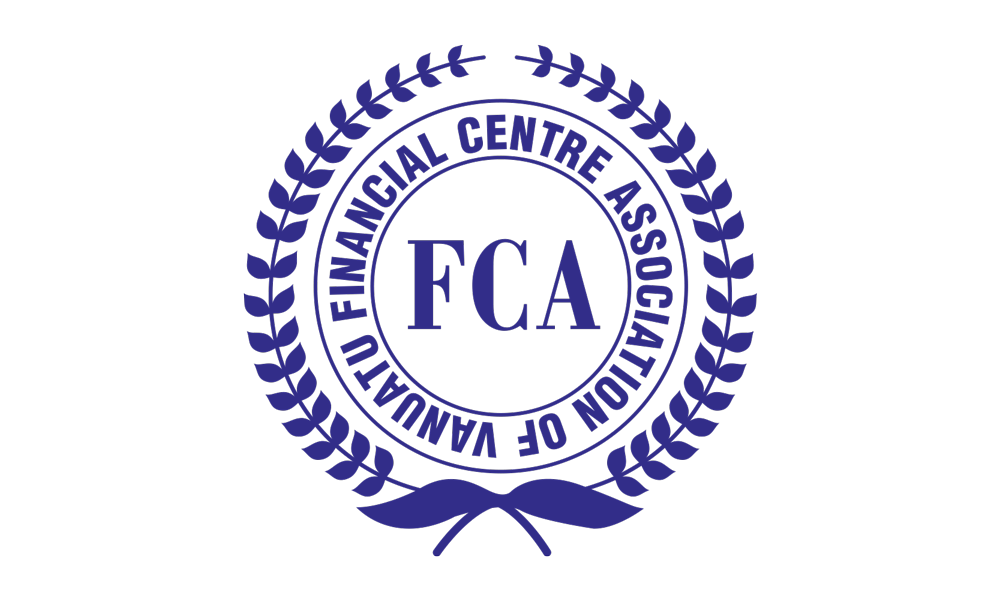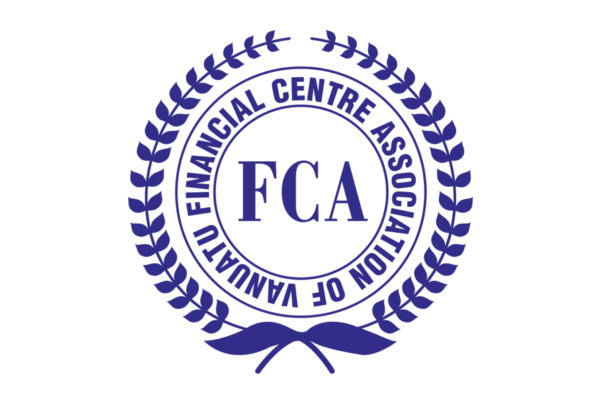Dear Members,
As we come to the end of another eventful year in the life of the FCA I would like to once again thank you all for your continued support and participation, without which the Association would struggle to exist.
After years of lobbying and effort (since October 2014), Vanuatu was finally white- listed by the FATF (Financial Action Task Force) and APG (Asia/Pacific Group on Money Laundering) in June and July 2018 respectively.
Unfortunately, in March 2019 the European Commission placed Vanuatu on its taxation blacklist (not to be confused with the separate blacklist relating to money laundering and terrorist financing).
As Chairman of the Finance Centre Association, I agree with the general opinion of the members of the association:
- Income tax will, without a doubt, have a negative impact on Foreign Direct Investment (FDI), and FDI is the main driver of economic growth. A small change in FDI has a large impact on Vanuatu’s growth due to knock-on effects in the wider economy. If GDP and wealth are the measure of success, growth is the engine and FDI is the fuel for the engine.
- Vanuatu is not without tax, as many diverse forms of taxation and levies currently exist (Value Added Tax, Import Duty, Excise Tax, Turnover Tax, Road Tax, Municipal tax, Stamp Duty Tax, Transfer Fees, Mortgage fees, Land Rent, etc.)
- Personal and Corporate Income Tax is one of the only forms of taxation that has not yet been copied and implemented by Vanuatu.
- Our understanding and knowledge of the Vanuatu economy obliges us to fight against the implementation of income tax on the basis that:
- The cost of administering and collecting income tax is too high given the very small tax base. Vanuatu’s population is small, spread across numerous remote islands, and largely poor in terms of financial wealth. These factors combine to make it a highly inefficient tax to implement.
- Income tax will, without a doubt, have a negative impact on Foreign Direct Investment (FDI), and FDI is the main driver of economic growth. A small change in FDI has a large impact on Vanuatu’s growth due to knock-on effects in the wider economy. If GDP and wealth are the measure of success, growth is the engine and FDI is the fuel for the engine.
- Income Tax cost of collection and management combine with negative effect on growth mean the net revenue effect for the government coffer will be negative.
- On the other hand, we are cognizant that the Vanuatu Government is under immense pressure from the OECD, EU, Australia and France to “homogenize” its taxation system in line with theirs, so as show off to their own voters that they are doing something to prevent the flight of capital and tax receipts from these jurisdictions to “havens” such as Vanuatu. (thus the black list). This is powder in the eye since IMF study show that 85% of the tax optimization business is facilitate by the eight major pass-through economies—the Netherlands, Luxembourg, Hong Kong SAR, the British Virgin Islands, Bermuda, the Cayman Islands, Ireland, and Singapore (source). Vanuatu is simple collateral damage in a fight that does not concern Vanuatu but since we are insignificant, the war is fight at our door, this sound like a repeating story, doesn’t it?
- These friendly nations are pursuing their own agenda; competition is always good as long as they win, and a level playing field is optional. Because they are powerful nations and Vanuatu is not, it is inevitable that at some point Vanuatu will have to capitulate and introduce income tax. It is vitally important though that the FCA continues to raise awareness of issues surrounding income tax and promote the recommendations outlined below so that when the time comes, the “least worst” outcome is hopefully peacefully achieved.
Recommendations if Vanuatu decides to go down the income tax path:
Before rushing in the introduction of income tax, Vanuatu must start collecting data about the wealth and revenue of its citizens, and of the enterprises and businesses operating in the country.
Data Collection First:
- We are recommending that the annual return lodged to VFSC must include financial statements, with assets, liabilities and an income statement. Companies should be able to lodge this online following a prescribed format. Fines should be used to incentivize compliance with deadlines. Reasonableness tests/data cross-matching should be performed between the information collected by the Department of Customs & Inland Revenue and VFSC for businesses of a certain size.
- Once the Govt has collected 1 to 2 years of data, it should be relatively easy to run reliable economic modelling on the impact of an income tax implementation.
- Aid donors should finance the digitization of the data collection process (specifically, the donors who are calling for an income tax to be introduced).
- Value added Tax and VNPF returns should be compulsory done via digital mean; this will greatly enhance compliance, and enhance the effectiveness and the efficiency of the audit team at the Department of Customs & Inland Revenue and this could simultaneously increase the sense of fairness and trust to the taxpayer.
A proper simple custom-made design Vanuatu Territorial income tax:
- Income tax legislation and regulation should be designed to be as simple as possible and avoid carving out exceptions or exemptions in order to minimize the cost of tax administration and compliance costs.
- As an example, corporate net taxable income could simply be calculated as net revenue from the VAT return minus wages as per VNPF declaration.
- As an example, corporate net taxable income could simply be calculated as net revenue from the VAT return minus wages as per VNPF declaration.
- We are of the firm opinion that income tax should be territorial and not based on worldwide income. Opting for a worldwide system will penalize Vanuatu and make it unattractive for retirees and foreign investors that have investments in other jurisdictions. Failure to address this point could dramatically affect Vanuatu economically.
- Revenue derived from Exported services and Exported products must be exempt from income tax exactly as these are currently exempt from VAT.
The Vanuatu Finance Centre Association is comprised of members with a deep interest in the future of Vanuatu. If Vanuatu’s Members of Parliament choose to enact income tax legislation, the FCA would appreciate the opportunity to be involved in the design of the tax system by drawing on the extensive expertise of its members. It is important that people from all areas and backgrounds are included in the process in order to achieve the best possible result for Vanuatu. Simply relying on public sector employees and foreign advisors funded by donor countries will not achieve an outcome that is in the best interests of the nation.
It is now clear to me that organisations like the OECD, EU, IMF, ADB, WB, UN, etc. – all of which are effectively controlled by the same G8 nations – are mandated to deliver the message and the policy choices of these elite nations, and the general consensus of these organizations is that Vanuatu’s economy shall become onlyTOURISM and AGRICULTURE and NOTHING ELSE.
These nations are either shareholders in organisations (like the ADB) or influential voting members in bodies such as the OECD or UN, or hold similar rights and roles within these organizations. Their influence within these organisations is usually directly related to their own GDP. The Economic Theory of Comparative Advantage is leading them to make Vanuatu a “two-trick pony” country (tourism and agriculture), and if we leave it to them to decide our fate it could lead to the destruction of locally owned and operated businesses in sectors such as banking, insurance, shipping, air transportation, and practically any sector except for tourism and agriculture. Vanuatu already struggles to compete internationally in the sectors of tourism (eg. against Fiji) and agriculture (kava import restrictions in countries such as Australia, lack of volume and supply reliability for everything else).
It is entirely foreseeable that 10 years from now, Vanuatu’s economy will have seen little to no growth and its main exports will be a handful of low value agricultural products, while still being propped up by foreign aid.
A lot of jobs, well-paid jobs, in the finance sector and also the small but growing technology industry are on the line. Vanuatu’s leaders and the wider population need to stand up against this trend of economic colonisation. If we cave to the demands of the larger nations, we will receive nothing in return. We just have to look at the current aid programs to understand the true priorities of aid donors. Good aid workers and volunteers, people who come to love and care about Vanuatu, are wasted on low impact programs that rarely become self-sufficient. Current programs that aim to promote handicrafts, island bungalows and coconut agriculture are great, no-one is disputing that they provide opportunities for some citizens who would otherwise struggle to enter the tourism and agricultural industries on their own. But the reality is that donor countries also fund these projects because they pose no threat to their own economic interests, provide excellent publicity and a “feel good” effect, yet ultimately do little or nothing to advance the living standards of the wider community.
Where is the funding for projects that could truly revolutionise Vanuatu and bring it closer to the living standards enjoyed by first world countries? Decent internet banking. Access to ecommerce and merchant platforms so that local businesses can finally export and compete in the global marketplace. Inter-operability of ATM and EFTPOS facilities. Secure, digital identification that could allow everybody to be bankable in the nation and potentially dramatically reduce the crime rate. Digitizing our Land Registry. Modernizing and assisting the finance centre. Encouraging the development of software and intellectual property in Vanuatu, opening Vanuatu to new technology such as Blockchain. The list goes on and on; anything that will help to reduce the lending rates offered by the banks here, open up alternative credit sources with a corresponding increase in the level of repayment security that a customer can provide to enable them to access lower interest rates. How about helping to reduce the FX rates banking customers are forced to pay when they receive or send funds overseas? The only time we see the usual aid donors react to a genuine need or demand for assistance is when they see competitors like China positioning themselves to step in.
Tourism and Agriculture are definitely two sectors Vanuatu should prioritise for development. But they are not the be all and end all. Our strength in Vanuatu is Diversity and Unity, this is what makes us interesting and attractive to the world. And diversification has long been known as essential to reduce financial risk from the small, individual investor all the way through to the national economy.
Let’s fight the standardization of the world. Let’s start by not accepting income tax as inevitable and argue accordingly. And should it actually eventuate, lets then be Ni- Vanuatu and do our best for the unity and wellbeing of the country so as to make the best of a bad situation, like we did after TC Pam hit us.
I have joined this to last year’s Chairman’s Report, as it contains a lot of information that is still relevant today.
2019-2020 will be an exciting period; I trust our association will grow this year.
Thanks for your support and trust. Thank you if you have read in full this long letter. Please spread the word around you, speak your mind, carry these idea if you believe in them and in Vanuatu.
Please do not hesitate to attend the monthly meetings and speak your mind and to join us in this quest to help Vanuatu become even better!
Martin St-Hilaire



